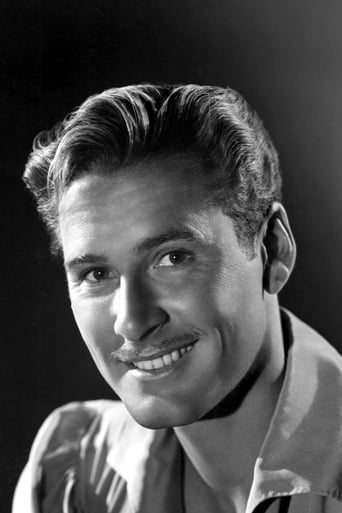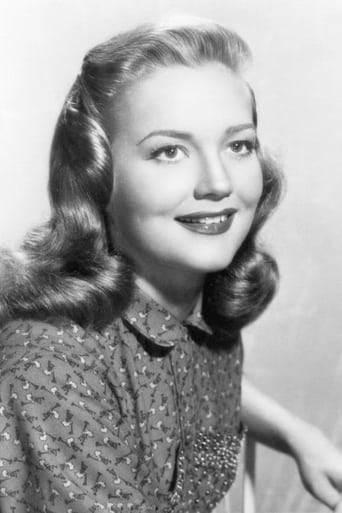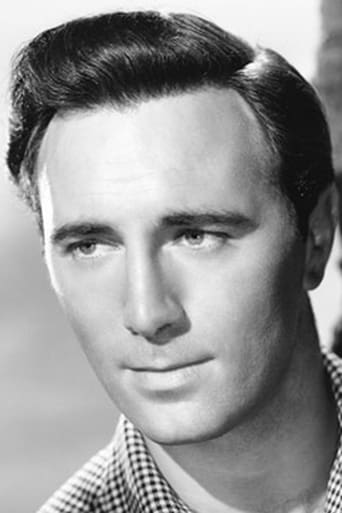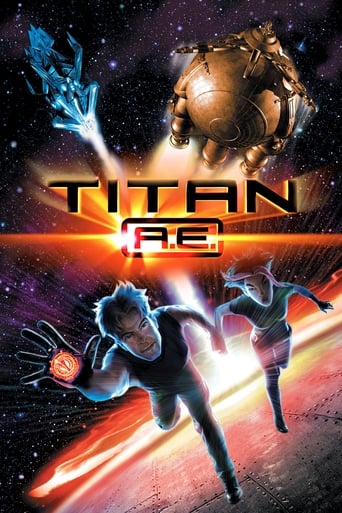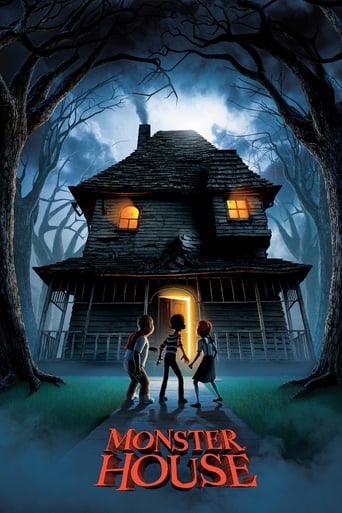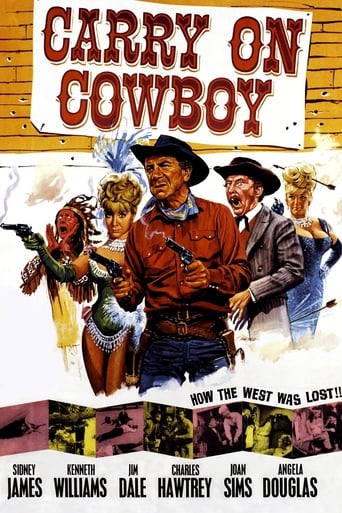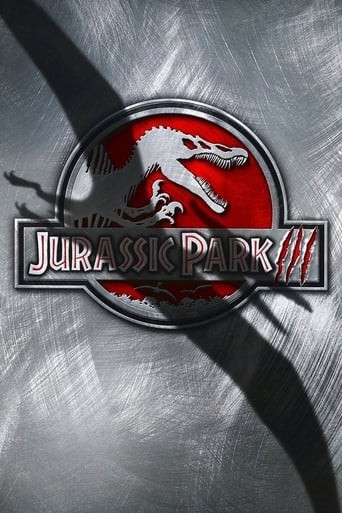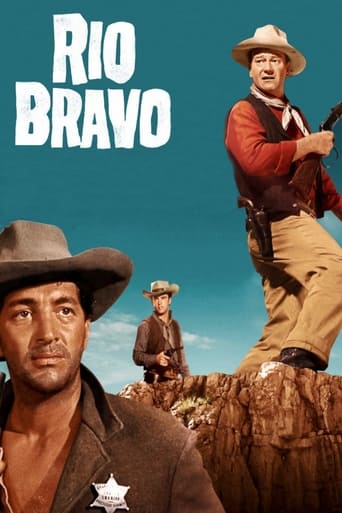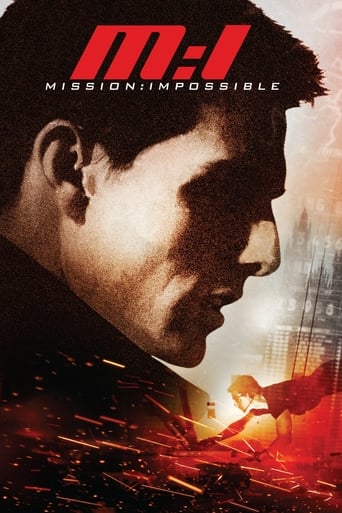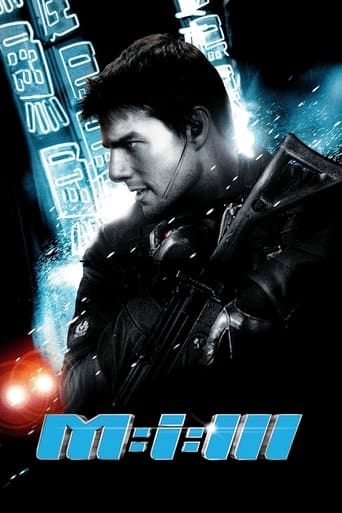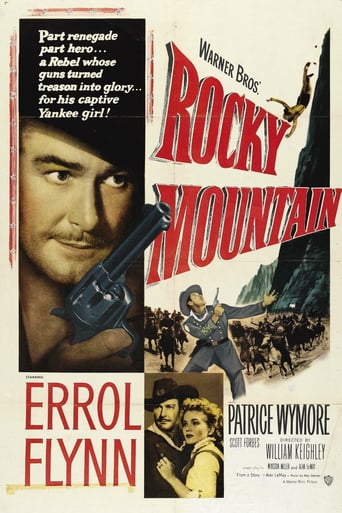
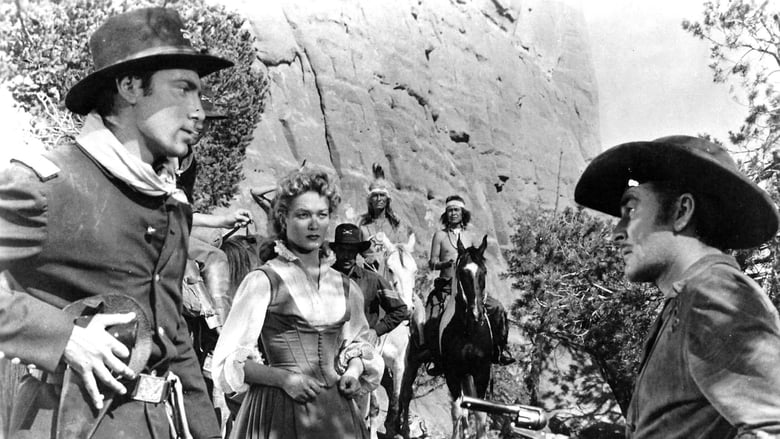
Rocky Mountain (1950)
A Confederate troop, led by Captain Lafe Barstow, is prowling the far ranges of California and Nevada in a last desperate attempt to build up an army in the West for the faltering Confederacy. Because the patrol saves a stagecoach, with Johanna Carterr as one of the passengers, from an Indian attack, and is marooned on a rocky mountain, it fails in its mission but the honor of the Old South is upheld.
Watch Trailer
Cast
Similar titles
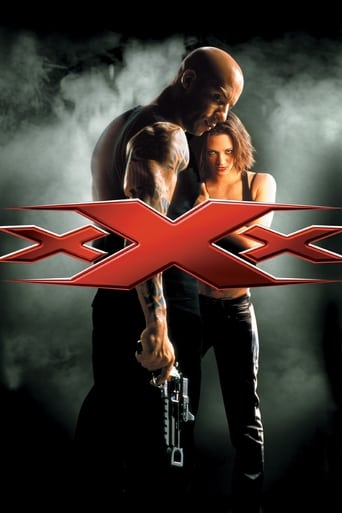
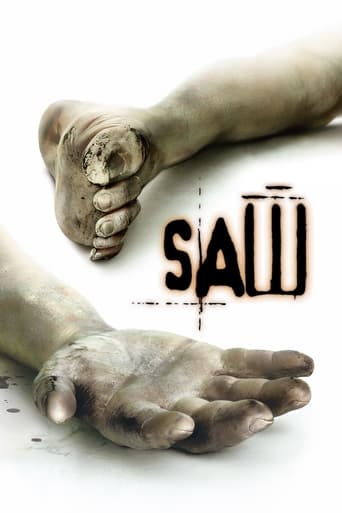

Reviews
Very good movie overall, highly recommended. Most of the negative reviews don't have any merit and are all pollitically based. Give this movie a chance at least, and it might give you a different perspective.
The acting in this movie is really good.
The film never slows down or bores, plunging from one harrowing sequence to the next.
An old-fashioned movie made with new-fashioned finesse.
Errol Flynn (Lafe Barstow), Patrice Wymore (Johanna Carter), Scott Forbes (Lieutenant Rickey), Guinn "Big Boy" Williams (Pap Dennison), Dick Jones (Jim Wheat), Howard Petrie (Cole Smith), Slim Pickens (Plank), Chubby Johnson (Gil Craigie), Buzz Henry (Kip Waterson), Sheb Wooley (Kay Rawlins), Peter Coe (Pierre Duchesne), Rush Williams (Jonas Weatherby), Steve Dunhill (Ash), Alex Sharp (Barnes), Yakima Canutt (Ryan), Nakai Snez (Man Dog).Director: WILLIAM KEIGHLEY. Screenwriter: Alan LeMay, Winston Miller, based on the story "Ghost Mountain" by Alan LeMay. Music by Max Steiner. Director of photography: Ted McCord. Film editor: Rudi Fehr. Art director: Stanley Fleischer. Set decorator: L.S. Edwards. Sound: Stanley Jones. Wardrobe: Marjorie Best. Orchestrations: Murray Cutter. Assistant director: Frank Mattison. Producer: William Jacobs. A Warner Brothers-First National Picture.Copyright 13 October 1950 by Warner Brothers Pictures, Inc. New York opening at the Strand: 3 November 1950. U.S. release: 11 November 1950. U.K. release: 23 August 1951. Australian release: 23 May 1952. 83 minutes. Censored to 7,427 feet (82 minutes) in the U.K.SYNOPSIS: Flynn's last western sees him as a Confederate officer sent with a small group of soldiers to California where they are supposed to meet with a powerful group of outlaws and persuade them to take the territory in the name of the Confederacy. The two groups are to meet at a hot, arid plateau in the desert that is fraught with danger and has been the site of many skirmishes between warring Indians and Union soldiers. As Flynn and his men wait for their party, a stagecoach being attacked by Indians roars by. The Confederate soldiers repel the Indians and inside the stagecoach is a beautiful young woman, Wymore, who was on her way to meet her fiancé, Forbes, a Union Army officer. Though Flynn is quite taken with the girl, he uses her as bait to lure her fiancé and his patrol into the desert in search of her. The Confederates manage to capture the Yankees, but then the Indians launch a massive attack.NOTES: Film debut of Slim Pickens.COMMENT: Meticulously directed by William Keighley, incorporating a most exciting chase sequence (doubtless staged by Yakima Canutt) right at the very start, this beautifully photographed mainly-on- actual-locations, Civil War western runs through its 83 minutes in commendably short order. The taut screenplay provides plenty of interesting and intriguing sequences and only one or two dull ones (the interludes between Flynn and Wymore). Performances are never less than capable.OTHER VIEWS: Despite a story that keeps to the suspenseful Greek unities of time, place and plot, this Rocky Mountain adventure tends to be a wearisome climb. Chiefly to blame is the screenplay with its verbose dialogue and unconvincingly stereotyped characters. Veterans like Chubby Johnson and Howard Petrie can get away with it. Even Flynn manages with a certain degree of polish and style. But Scott Forbes and especially Dick Jones are distinctly uncomfortable. Miss Wymore is okay, but strikes no sparks. An added burden is provided by a dog, sketched into the plot solely to be milked for gratuitous sentiment.Keighley's direction is dull and occasionally lacking in finesse that results in clumsy editing with jarring close-ups arbitrarily inserted. But McCord's marvelous location photography with all its deep focus effects, clouded skylines and running inserts, is something else again. Uncredited Canutt undoubtedly did the action material and splendid stuff it is too.
"For it being 1950, I was stunned to find so many real and honest performances. There was none of that obnoxious "Studio Acting" where everyone is chewing scenery and pretending to be their character."This was the comment of a previous reviewer. Anyone who is "stunned" to find good acting in a 1950 movie has probably not seen many movies from that period. As for "chewing scenery", I wonder if this person has ever paid attention when "method" icons like Dean, Brando, Cobb, Palance, and Penn are on screen. It's often a miracle there's any scenery left uneaten to finish the movie with!"Rocky Mountain" is one of Flynn's better films (of many good ones), and as always, this underrated actor is real and natural. The movie is also of interest as the debut of noted character actor Slim Pickens. The story is gritty and dark, and the scenery and photography are spectacular. The ending is quite moving. This is a movie worth seeing.
Says Lafe Barstow, captain in the army of the Confederate States of America, about his command: "Six rattle-headed kids and an old man...Kip Waterson, the baby-faced heir to a plantation...Pierre Duchesne, from French Louisiana...Pat Dennison, an old man, really, but a hard, reckless fighter who never gave ground while he lived...Kay Rawlins from the Mississippi steamboats, a rough and friendly man as the Indians now found out...Jimmy Wheat, a little red neck cropper who could fight like a wildcat with hydrophobia, who carried a useless little dog for 2,000 miles...Jonas Weatherby, the Texan, a seasoned plainsman at 18...Plank, another real plainsman, hard and bitter, with chain gang scars on his legs at 22..." They've come 2,000 miles with orders to raise an army among the Confederate sympathizers in California in a last-chance effort to draw the Union armies away from Lee. It's 1865. Even if we don't remember our history too well, we know Barstow's command is probably not going to end well. Please note that elements of the plot are discussed. During the next three days we're going to get to know quite well Captain Barstow (Errol Flynn) and his men. They're holed up in the Nevada Mountains vainly waiting for promised assistance from a California renegade. They've rescued a stage driver and a woman passenger, the fiancée of a Union officer, from an Indian attack. They've tricked and captured a Union patrol. And they know Shoshone warriors are gathering in force to wipe everyone out. This was the last western Flynn made. Warner Brothers put as few resources into the making of this movie as they could get away with. There are a handful of actors, with only Flynn being a name, and perhaps 50 extras on horseback. It was shot at one location outside Gallup and on what looks like just one studio set. It's in black and white. The screenplay is workmanlike, but in the best sense of the word; there are requisite memories of Jimmy Wheat, just 16, designed to hook us with sympathy; there's a little Barstow backstory about his cotton plantation, his fiancé who is now dead, his weary acceptance of duty for a cause he believes in; and there is no hint of emerging attraction between Barstow and Johanna Carter (Patrice Wymore). She loves her Union officer even if she becomes more sympathetic to what Barstow and his seven men face. The dialogue is efficient. Unless you're a great writer (and even if you are), that's solid praise. About a third of the movie is shot at dusk, night or early morning when a lot of set deficiencies can be covered up. In fact, Rocky Mountain is probably the smallest scale movie Flynn ever made. It's poetic justice that Rocky Mountain turns out to be a very good film, especially because of its small scale. The movie didn't have the budget to screw things up by trying to turn the story into something bigger than it was, or Flynn into a wooing hero. Flynn plays Barstow as a man with burdens. There's none of the Flynn charm and easy smiles. With the exception of Miss Carter, Flynn's interactions are all with other men, those under his command and those who might shoot them. As Barstow's options dwindle he faces reality with none of the Hollywood posturing that takes place in bigger budget movies. To accept the situation and take action is something he and his men simply shrug their shoulders about and then get on with it. "I never thought it would end this way," Johanna Carter says to him." "There never was any other way," Captain Barstow tells her. "We just put it off awhile." Rocky Mountain, in its small-scale way, is a good movie.
This film has an unusually gritty and authentic look and feel, and an unusual ending for a 1950's western.( I can't say more or I would ruin the plot for anyone who hasn't seen the film). It has a very good beginning and a truly exciting and emotional ending. The middle though,does drag a bit.The characters of the confederate soldiers are very well established and should elicit sympathy and respect.This was Errol Flynn's last western, and , while he was no longer in his prime and looks older and a little weathered, he is perfect for the role of a man who has seen too much war. One aspect of the film that is little commented on it the exceptional horsemanship in the film. In real life, Flynn and several of the co-stars were very good horsemen, and it really shows.
